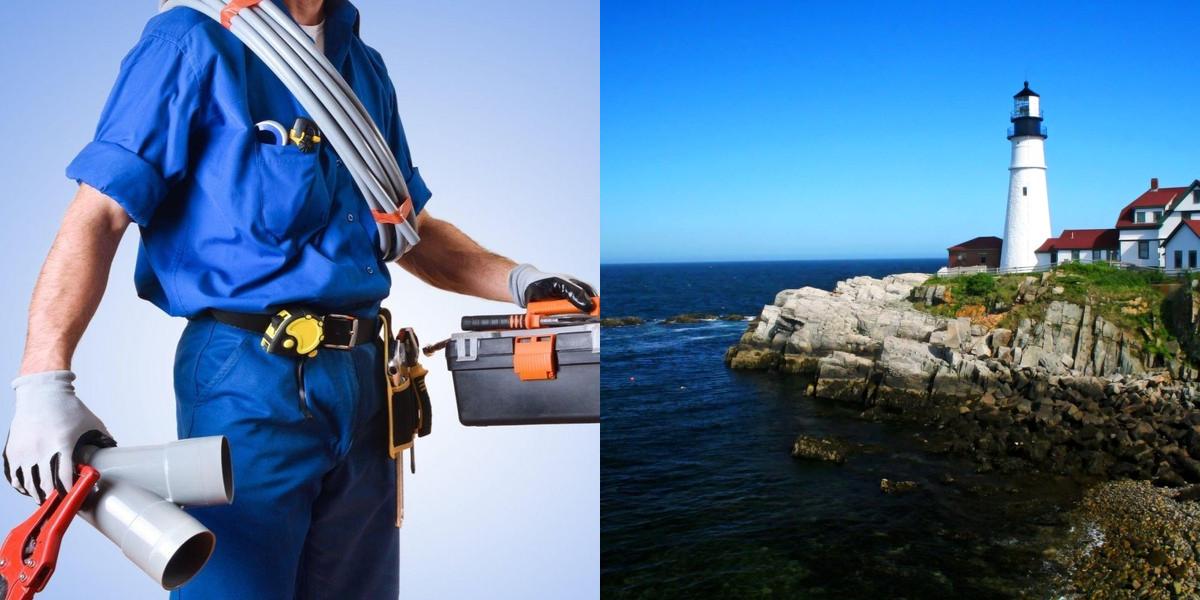How to Become a Plumber in Maine

Plumbers play a crucial role in ensuring the proper functioning of our water and sewage systems. They are responsible for installing, repairing, and maintaining pipes, fixtures, and other plumbing equipment. If you are interested in pursuing a career as a plumber in Maine, here are the key points you need to know:
2. Network
Networking is an essential aspect of finding a job in any industry, including plumbing. Reach out to friends, family, and acquaintances who may have connections in the plumbing industry. Attend industry events, join professional organizations, and participate in online forums or groups to expand your network and learn about job opportunities.
3. Apply to Plumbing Companies
Research and identify plumbing companies in your area and submit your resume and cover letter to them. Many plumbing companies are constantly hiring, and they may have apprenticeship or entry-level positions available. Even if they don't have any immediate openings, they may keep your resume on file for future reference.
4. Consider Government or Municipal Jobs
Government agencies and municipal organizations often hire plumbers for maintenance and repair work. These jobs can offer stability and benefits, making them attractive options for many plumbers. Check local job boards or government websites for plumbing job openings in your area.
5. Create an Online Presence
In addition to applying directly to plumbing companies, it can be beneficial to create an online presence to showcase your skills and expertise. Create a professional website or online portfolio where you can showcase your work, provide information about your services, and list your contact details. This can help potential employers or clients find you and learn more about your qualifications.
6. Consider Starting Your Own Business
If you have the entrepreneurial spirit, starting your own plumbing business can be a rewarding option. This allows you to have control over your schedule, clients, and projects. However, starting a business requires careful planning, financial investment, and marketing efforts. It is essential to research and understand the requirements and challenges of running a plumbing business before taking this route.
Career Paths and Opportunities after Becoming a Plumber
Once you have become a certified plumber and gained some experience in the field, there are several career paths and opportunities available to you. Here are a few options to consider:
1. Specialize in a Specific Area
Plumbing is a diverse field with various specializations. You can choose to specialize in areas such as residential plumbing, commercial plumbing, industrial plumbing, or even become a specialist in specific tasks like pipefitting or gas line installation. Specializing can allow you to focus on specific types of projects and develop expertise in a particular area.
2. Become a Supervisor or Manager
With experience and additional training, you can progress to a supervisory or managerial role within a plumbing company. These positions involve overseeing projects, managing teams, and ensuring the smooth operation of plumbing operations. Leadership skills, problem-solving abilities, and strong communication skills are essential for success in these roles.
3. Teach or Train Future Plumbers
If you enjoy sharing your knowledge and helping others, you may consider becoming a plumbing instructor or trainer. Many vocational schools, community colleges, and technical institutes hire experienced plumbers to teach aspiring plumbers. This allows you to pass on your skills and expertise to the next generation of plumbers.
4. Start Your Own Plumbing Business
As mentioned earlier, starting your own plumbing business is a viable option for experienced plumbers. It allows you to have control over your work, clients, and projects. Running a successful plumbing business requires business skills, marketing efforts, and excellent customer service. However, it can be a rewarding venture for those who are up for the challenge.
5. Continue Learning and Expanding Your Skills
The plumbing industry is continually evolving, with new technologies and techniques being introduced. To stay competitive and up-to-date with industry standards, it is essential to continue learning and expanding your skills. Attend workshops, seminars, and conferences, and consider pursuing additional certifications or courses to enhance your knowledge and expertise.
Final Thoughts
Becoming a certified plumber requires dedication, hard work, and a commitment to learning and improving your skills. However, the rewards of a career in plumbing can be significant, including job security, a stable income, and opportunities for growth and advancement.
By following the steps outlined in this guide, you can obtain your plumber certification, find a job in the plumbing industry, and explore various career paths and opportunities. Whether you choose to work for a plumbing company, start your own business, or specialize in a specific area, the skills and knowledge you acquire as a plumber will serve you well throughout your career.
Are you thinking about a job change or wanting to learn more about different career paths? Feel free to check out these additional articles:

Vduani Martinez is a part of the Growth team at Dreambound. She creates and fixes workflows and automation to guarantee seamless operations. On top of that, she manages databases to ensure all information is up to date. Vduani is a licensed Electronics Engineer who loves coffee and is a travel enthusiast. Out of the office, she enjoys going on road trips and discovering new cafes and restaurants.





